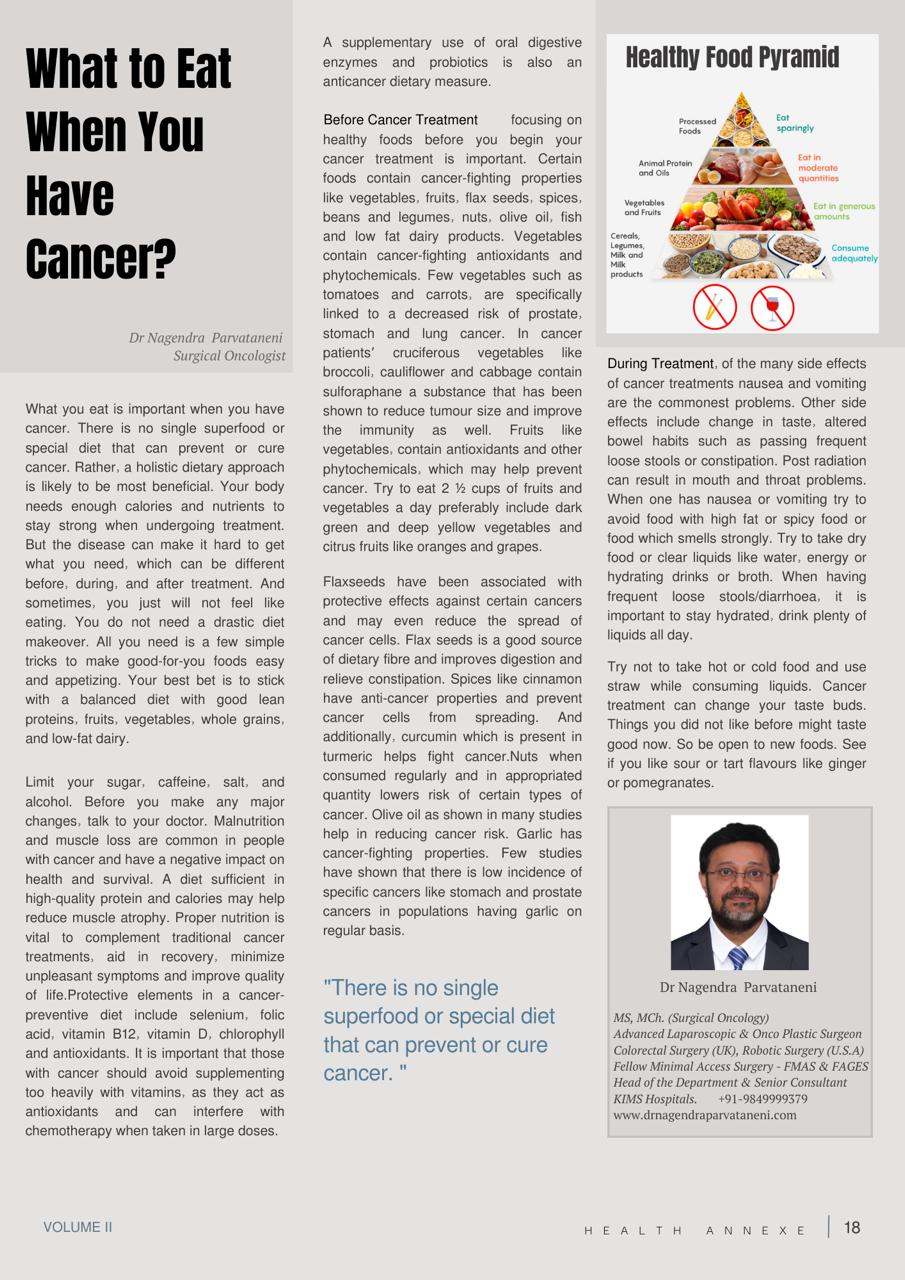What you eat is important when you have cancer. There is no single superfood or special diet that can prevent or cure cancer. Rather, a holistic dietary approach is likely to be most beneficial. Your body needs enough calories and nutrients to stay strong when undergoing treatment. But the disease can make it hard to get what you need, which can be different before, during, and after treatment. And sometimes, you just will not feel like eating. You do not need a drastic diet makeover. All you need is a few simple tricks to make good-for-you foods easy and appetizing. Your best bet is to stick with a balanced diet with good lean proteins, fruits, vegetables, whole grains, and low-fat dairy.
Limit your sugar, caffeine, salt, and alcohol. Before you make any major changes, talk to your doctor. Malnutrition and muscle loss are common in people with cancer and have a negative impact on health and survival. A diet sufficient in high-quality protein and calories may help reduce muscle atrophy. Proper nutrition is vital to complement traditional cancer treatments, aid in recovery, minimize unpleasant symptoms and improve quality of life. Protective elements in a cancer-preventive diet include selenium, folic acid, vitamin B12, vitamin D, chlorophyll and antioxidants. It is important that those with cancer should avoid supplementing too heavily with vitamins, as they act as antioxidants and can interfere with chemotherapy when taken in large doses. A Supplementary use of oral digestive enzymes and probiotics is also an anticancer dietary measure.
focusing on healthy foods before you begin your cancer treatment is important. Certain foods contain cancer-fighting properties like vegetables, fruits, flax seeds, spices, beans and legumes, nuts, olive oil, fish and low fat dairy products. Vegetables contain cancer-fighting antioxidants and phytochemicals. Few vegetables such as tomatoes and carrots, are specifically linked to a decreased risk of prostate, stomach and lung cancer. In cancer patients’ cruciferous vegetables like broccoli, cauliflower and cabbage contain sulforaphane a substance that has been shown to reduce tumour size and improve the immunity as well. Fruits like vegetables, contain antioxidants and other phytochemicals, which may help prevent cancer. Try to eat 2 ½ cups of fruits and vegetables a day preferably include dark green and deep yellow vegetables and citrus fruits like oranges and grapes.
Flaxseeds have been associated with protective effects against certain cancers and may even reduce the spread of cancer cells. Flax seeds is a good source of dietary fibre and improves digestion and relieve constipation. Spices like cinnamon have anti-cancer properties and prevent cancer cells from spreading. And additionally, curcumin which is present in turmeric helps fight cancer.Nuts when consumed regularly and in appropriated quantity lowers risk of certain types of cancer. Olive oil as shown in many studies help in reducing cancer risk. Garlic has cancer-fighting properties. Few studies have shown that there is low incidence of specific cancers like stomach and prostate cancers in populations having garlic on regular basis.
![]()
During Treatment, of the many side effects of cancer treatments nausea and vomiting are the commonest problems. Other side effects include change in taste, altered bowel habits such as passing frequent loose stools or constipation. Post radiation can result in mouth and throat problems. When one has nausea or vomiting try to avoid food with high fat or spicy food or food which smells strongly. Try to take dry food or clear liquids like water, energy or hydrating drinks or broth. When having frequent loose stools/diarrhoea, it is important to stay hydrated, drink plenty of liquids all day.
Try not to take hot or cold food and use straw while consuming liquids. Cancer treatment can change your taste buds. Things you did not like before might taste good now. So be open to new foods. See if you like sour or tart flavours like ginger or pomegranates.


